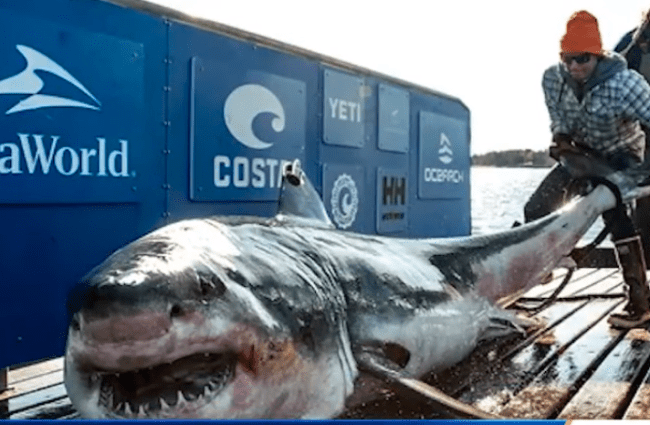Hilton Head Island Shark Attacks: Understanding and Staying Safe
Discover the Facts and Learn Safety Tips for a Worry-Free Beach Experience

Hilton Head Island, a beautiful beach destination in South Carolina, has recently seen an increase in shark encounters. While the thought of shark attacks can be alarming, it’s essential to understand the facts and learn how to stay safe. This article provides an in-depth look at shark attacks on Hilton Head Island, offering informative insights and practical safety tips for beachgoers.
The Recent Incidents
2023 Attack: A Close Call
In July 2023, a 60-year-old man was bitten by a shark while wading in waist-deep water off Sea Pines beach. He was immediately assisted by Shore Beach Service personnel and transported to Hilton Head Hospital. This incident highlights the need for awareness and caution when enjoying the ocean.
2021 Attack: A Lifeguard’s Ordeal
In 2021, a lifeguard at Palmetto Dunes was checking water conditions when a shark bit him, causing deep lacerations to his chest. He was airlifted to a hospital in Savannah, Georgia. This event underscores that even experienced individuals can fall victim to shark attacks under certain conditions.
Understanding Shark Behavior
Why Do Sharks Attack?
Sharks are often misunderstood. They do not intentionally target humans; most attacks are cases of mistaken identity. Sharks may confuse swimmers with their natural prey, such as seals. Most shark species on Hilton Head Island’s coast are not aggressive toward humans.
Species Found Near Hilton Head
Several shark species inhabit the waters around Hilton Head Island, including:
- Finetooth Shark: Relatively small and usually not dangerous to humans.
- Blacknose Shark: Another small species commonly found in coastal waters.
- Bonnethead Shark: A small hammerhead shark that is generally not a threat to humans.
- Tiger Shark: Larger and more aggressive, but encounters with humans are rare.
- Great Hammerhead Shark: Known for its distinctive head shape, it rarely attacks humans.
- Great White Shark: Occasionally found in the area, but attacks are sporadic.
Safety Tips for Beachgoers
Best Practices to Avoid Shark Encounters
- Swim During Daylight: Sharks are more active at dawn and dusk. Swimming during daylight hours reduces the risk of an encounter.
- Stay in Groups: Sharks are more likely to attack individuals alone.
- Avoid Fishing Areas: Do not swim near piers or places where people are fishing, as bait can attract sharks.
- Do Not Wear Shiny Jewelry: The glint of jewellery can resemble fish scales, attracting sharks.
- Be Cautious Around Schools of Fish: Sharks often follow schools of fish, so avoid swimming near them.
- Heed Warnings and Follow Instructions: Pay attention to local advisories and follow lifeguard instructions.
Responding to a Shark Encounter
What to Do If You See a Shark
- Stay Calm: Do not panic. Move slowly and steadily toward the shore.
- Do Not Splash: Splashing can attract sharks by mimicking the movements of distressed prey.
- Maintain Eye Contact: If a shark approaches, maintain eye contact and position yourself to keep the shark in view.
- Defend Yourself: If a shark attacks, defend yourself by striking its eyes, gills, or snout.
The Role of Lifeguards and Authorities
Enhanced Safety Measures
Lifeguards and local authorities on Hilton Head Island have implemented several measures to ensure beachgoers’ safety:
- Regular Patrols: Lifeguards patrol the beaches to monitor shark activity and other hazards.
- Public Awareness Campaigns: Efforts to educate the public about shark behaviour and safety measures.
- Emergency Response Plans: Quick and effective response plans for shark attacks and other emergencies.
Debunking Myths About Sharks
Common Misconceptions
- Sharks Are Mindless Killers: This is a myth perpetuated by the media. Sharks are intelligent predators that rarely attack humans.
- All Sharks Are Dangerous: Most shark species pose no threat to humans. Attacks are typically by a few larger species.
- Sharks Are Always Near the Shore: Sharks are usually found several miles offshore and come closer only occasionally.
The Bigger Picture: Shark Conservation
The Importance of Sharks in the Ecosystem
Sharks play a crucial role in maintaining the balance of marine ecosystems. They help control the population of other aquatic species, ensuring the health and diversity of ocean life.
Conservation Efforts
Efforts are underway globally and locally to protect shark populations and their habitats. Understanding and respecting these magnificent creatures can help ensure their survival and the health of our oceans.
Personal Stories: Encounters and Lessons
Interviews with Survivors
Survivors of shark attacks often share their experiences to raise awareness and educate others. Their stories provide valuable lessons on how to react in the unlikely event of a shark encounter.
Testimonials from Experts
Marine biologists and shark experts offer insights into shark behaviour and safety tips. Their expertise helps demystify these often misunderstood creatures.
Conclusion: Enjoying Hilton Head Island Safely
Hilton Head Island remains a beautiful and safe destination for beachgoers. By understanding shark behaviour and following safety guidelines, you can confidently enjoy the ocean. Stay informed, stay cautious, and appreciate this incredible island’s natural beauty and biodiversity.



